
The young Palestinian women in the Jerusalem classroom become animated when the conversation turns to love. A few wear make-up and knee-length skirts, others wear the hijab - but all have something to say about how the wall that Israel calls its ‘security fence’ has diminished their chances of marriage. “I won’t marry a boy with a West Bank ID because we could not be together. He could not move to Jerusalem because the Israelis would not let him and I will not go to the West Bank because life is worse there,” said 18-year-old Elia Shami. The wall, which cuts through Jerusalem, has created a hierarchy of desirability based on the colour of the plastic Palestinian ID cards the youths carry, the girls told IRIN. Read more about Wall creates Palestinian cultural divide

Israel began building an eight-metre high, 703km-long concrete barrier through the West Bank in the occupied Palestinian territories in 2002. To date, some 670km of it has been completed. In July 2004, the International Court of Justice (ICJ) in the Hague ruled that the barrier’s route, which weaves around the western border of the majority occupied territory was illegal under international humanitarian and human rights law, because it ‘gravely’ infringes on a number of rights of Palestinians living in the West Bank. Barely five kilometres separate holy sites in Jerusalem’s Old City and the Church of the Nativity in Bethlehem, where Christians believe that Jesus Christ was born. Read more about Ghettos form in shadow of the wall

Abu Khamis’s credit book is seeing a lot of use these days. The scribbled notes account for 45,000 shekels (US$10,000) owed for goods he has advanced to his penniless customers. “I have two credit books full of debt. I’m getting women coming in and offering to sell their jewellery, even their wedding rings. People simply have no money,” the clothes trader, who works in the central market of Gaza’s teeming Jabalia refugee camp, said. But Khamis’s credit line has almost run out. “I can carry on like this for about another month - and then I will have to stop lending,” he said. “And it’s not just me - it’s every shop in Jabalia.” Read more about Gaza's teetering tower of debt
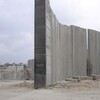
Israel began building an eight-metre high, 703km-long concrete barrier through the West Bank in the occupied Palestinian territories in 2002. To date, some 670km of it is completed. Israel says the wall is a security measure to protect Israeli citizens from terrorist attacks by Palestinian militants. When the barrier is completed, about 10 per cent of the West Bank will be inside Israel. In July 2004, the International Court of Justice (ICJ) in the Hague ruled that the barrier’s route, which weaves around the western border of the occupied territory, was illegal under international humanitarian and human rights law because it “gravely” infringes on a number of rights of Palestinians living in the West Bank. Read more about Palestinian homes abandoned in flight across Israel's wall
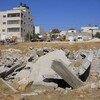
Palestinian human rights activists have said that using citizens as human shields to protect the homes of suspected militants is wrong, but said Gazans are simply protecting each other and their houses because they believe no one else will. The comments came after the US-based watchdog Human Rights Watch (HRW) issued a statement on Wednesday condemning Palestinian armed factions for encouraging civilians to gather in and around suspected militants’ homes targeted by the Israeli military. Jaber Oshaah of the Palestinian Centre for Human Rights in Gaza told IRIN that he agreed with HRW’s statement but could understand why this strategy was being used. Read more about Gazans want to protect homes, say rights activists
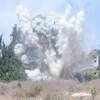
The Israeli army sowed landmines in south Lebanon during its summer conflict with Hezbollah in Lebanon, the United Nations said on 25 November. The claims came after British and Bosnian bomb disposal experts each had a foot amputated after a newly laid Israeli-made anti-personnel landmine exploded on Friday, according to a statement by the UN’s Mine Action Coordination Centre in South Lebanon (UNMACC SL). Israel has not yet established whether its forces laid landmines in Lebanon during its recent conflict, officials speaking on condition of anonymity at the Israeli Defense Force (IDF) told IRIN. Read more about Accident reveals newly laid Israeli mines, UN says
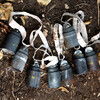
Any other year, the olive harvest season would now be in full swing in Zawtar Sharqiyye, a village in southern Lebanon’s Nabatiyye region, where the majority of people make a living from farming olives and tobacco. “This year, because of the cluster bombs, the olive harvest is lost,” said Riad Ali Ismail, head of the local municipality. Three months after the 34-day war between Israel and Hezbollah ended, up to one million unexploded cluster bombs still lie scattered throughout southern Lebanon, according to United Nations agencies. The seemingly innocuous small bombs pose a deadly hazard to the population. Read more about Cluster bombs threaten farmers' lives, hamper olive harvest
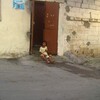
BEIRUT - Residents of overcrowded Palestinian refugee camps in Lebanon have told IRIN that they were doubtful that a government and United Nations joint Camps Improvement Initiative to improve their living conditions will bring them any benefits. “None of this will happen. No one here helps the Palestinians,” said Ahmed Hassan, an unemployed Palestinian refugee who lives in Chatila camp on the outskirts of Beirut. Hassan is one of more than 400,000 Palestinian refugees officially registered with the UN agency for Palestine Refugees (UNRWA) in Lebanon. Just over half of the Palestinian refugees live in 12 ‘camps’ - specially set up residential areas that are controlled by Palestinian authorities. Read more about Palestinians doubtful of camp improvement initiatives
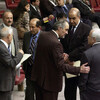
Foreign ministers of 11 Arab countries attending an emergency Arab League meeting in Cairo on Sunday, criticised a United States veto of a United Nations Security Council draft resolution that condemned the recent Israeli offensive on Gaza and that would have demanded that Israeli troops pull out from the area. The draft resolution calling for the protection of civilians during Israeli military operations in the Palestinian Occupied Territories, was vetoed on Saturday by the US in a special meeting held here at the UN Security Council. Though language proposed by Qatar was modified first to placate other council members, the resolution still did not go through. Ten of the 15 members were in favour of the draft resolution, while four abstained, including the United Kingdom, Denmark, Japan and Slovakia. Read more about Arab Foreign Ministers criticize US veto on Gaza
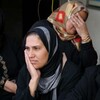
The UN Security Council held an emergency meeting on Thursday at the request of Qatar - the lone Arab representation on the council - regarding the killing of 18 Palestinians on Wednesday by the Israeli Defense Forces (IDF). At dawn on Wednesday, the IDF fired between 12 and 15 shells at an apartment block in Beit Hanoun, in the northern Gaza Strip, killing 18 people while they slept, mostly women and children. A further 55 people were injured. Council members held closed consultations on a draft resolution circulated by Qatar on Wednesday before holding an open meeting with 45 speakers that included a briefing by Angela Kane, UN Assistant Secretary-General for Political Affairs. Read more about Qatari draft resolution calls for ceasefire and UN observer force









